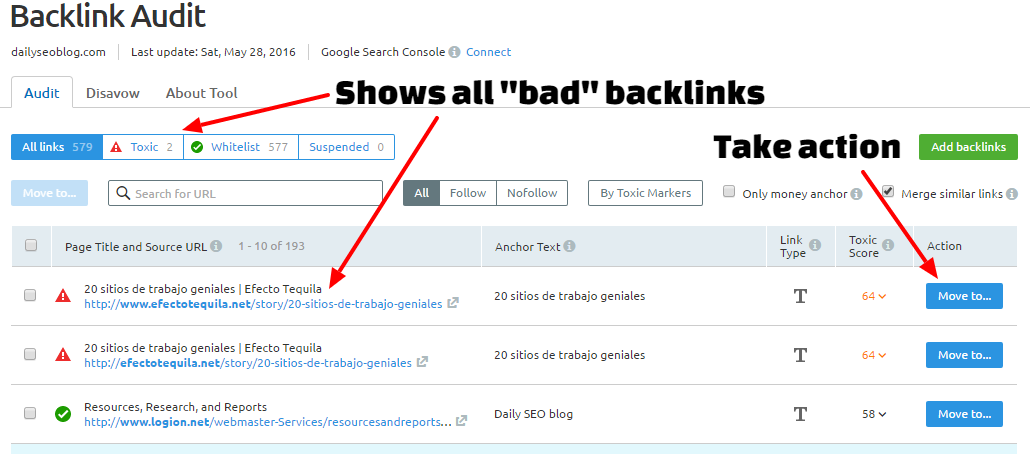7 Reasons Why I Prefer SEMRush To Any Other SEO Software
This article was updated on August 6th, 2020 at 05:57 am
Of course, there are several SEO tools out there but one tool that consistently impressed me, over the last couple of years is SEM Rush. It started off as a PPC keyword research tool and today is a full on complete SEO + PPC suite. It has come a long way and has become this indispensable tool in any SEOs arsenal.
Many people still use it as a keyword research tool, but in this article I want to share with you some cool stuff it can do (which most other tools don’t).
1. It’s a better keyword research tool than Google AdWords

If you’re still following the old school SEO practices, you would be doing keyword research by mining data from Google AdWords. I used to do it too, but not any more. Reason? You can’t trust Google AdWords data for SEO keyword research. (References – Google Keyword Planner’s Dirty Secrets by Russ Jones on Moz, Can We Trust Google Keyword Planner by Agnette Pederssen on State of Digital, Why The Google AdWords Keyword Tool Shouldn’t Be Used For SEO – A Case Study by David Naylor.) PPC research is cool, but not SEO. Especially considering that people’s search patterns has dramatically changed over the last couple of years, with multiple platforms, mode and sources.
What I really like in SEM Rush is one of their newest features called SEO Keyword Magic (still in beta). With this tool, it doesn’t just show you keywords not just from a PPC perspective (with a straight forward approach of showing keyword + search volume) but from a realistic search perspective, as in with Keywords grouped into related keyword themes that would give more insights into the search intent based on a primary keyword.
Let’s say your primary keyword is “Taxes”. Google AdWords will show you everything related to “Taxes” and then you have to guess the other alternatives to find their respective search volumes. But in SEM rush, you would immediately get an idea of what related themes are present within the alternatives.
One thing I wish they had was “related keywords search”, where it would show me keyword data based off of Google Suggested Keywords .
2. It offers useful keyword data from 25+ countries

Why would this make a difference? Well, for companies that has traffic outside of the US, it is important to find search data from those corresponding countries. And keyword data is completely different in each country. SEM Rush shows you keyword data from different countries easily. There are some other tools like (SERPStat) that does this in a very easy way too, but their country list is limited. For example, in the above search for “Taxes” keyword data from India is completely different from that of USA.
3. It offers specific technical SEO fixes with history!

I know there are many SEO tools that claim to do this – provide SEO suggestions to improve onpage SEO factors on the page. In my opinion, none of that is really useful. Because, one, you have to put your thinking into it. Automatic suggestions just don’t cut it and is often wrong, so I end up ignoring it (like on Moz). At best, what it does is provide suggestions on what might be wrong and you have to come up with a solution based on your understanding of how the site works.
But in SEMRush’s case, I like how they categorize SEO issues into errors, warnings and notices. And the recommendations are technical that can be fixed, like broken links, sitemap v/a crawled pages, duplicate meta (something many tools offer), canonical issues (also offered by most other SEO tools), AMP v/a Non AMP pages and most importantly history of issues tracked (very useful!).
What is awesome is I can customize these reports for what I’m most concerned about, like say just track AMP pages issues, or canonical issues and ignore the rest. Very useful!
4. It offers SEO Recommendations that actually work!

So, let’s say you run a website with a lot of broad keywords around a topic and there are several pages that rank for related keywords. Chances are that, even if you optimize your pages for a particular keyword, what actually works in SERPs would be completely different from what you expected. I don’t know about you but in my case, there are often surprises where just because of the topical relevance or authority, many pages that I didn’t even optimize for a particular keyword get ranked on search results. You can only track these pages over a period of time after you’ve seen some consistent performance. And this is where SEMrush can help you maximize your results.
It has this really cool feature called “SEO Ideas” where it’ll choose your top performing pages and give you recommendations to improve them. These aren’t vague recommendations but real valuable stuff like keyword recommendations to add to the page, based off of related keyword search volume and competitor data. Ex: it would recommend all the keywords that has potential search volume and are present in your competitors page but not yours. Really useful!
It also tells me which websites should I be getting backlinks from. Obviously you don’t have to chase all of them but it gives you a good idea of where you stand and what might be a good link acquisition strategy. And this happens at a page level not the root domain level – really useful!
5. Finding long tail keywords is easy!

Long tail keywords are without doubt the secret sauce to generating quality traffic. I’ve found that long tail keywords have a lot of quality compared to broad keywords because of the fact that they are better converting as they’re closer to the buying funnel. And it’s comparatively easier to rank for them than highly competitive broad keywords. When I compare between a 20k searches/month two word keyword to a 1K searches/month 6 word keyword, I always prefer the long tail one because not only is it easier to rank, but it makes sense from a search perspective. When you optimize for the broad keyword, you’re struggling too hard and possibly in a risky situation where you don’t really know what the search intent is, while as for the long tail one, you know precisely what the person is looking for.
In SEM rush, finding long tail keywords is so much easier than any other keyword research tool I’ve tried. Their “Related Keyword” feature is just what you need. Let’s say you are researching on long tail keywords for anything related to SEO, just go to related searches and add in the filter with the derivative term. In this example, let’s say you want to find out all the “How to + SEO” phrases. This is what you get when you punch in “How to” to the filter “include”+”keyword” + “containing” > “How to”.
6. It alerts you for possible Google penalties

Reputation and “trust factor” of your websites are super important in this post Penguin – Panda SEO world we’re living in. So it’s very important for SEOs to keep track of their backlinks and see if they’re all looking good, and take action if not. I know there are dedicated SEO agencies out there who help you with your SEO link detoxification, but with SEMRush, it’s so much more easier.
Their SEO Backlink Audit tool is really helpful in finding the health factor of your website based on what links points to it.
And when you spot a bad link, it is easy to “Disavow” the links or domain right from the tool.

All the disavowed domains/links will be saved in the Disavow list, from where you can export the list (according to Google Webmaster guidelines) and easily use the Google Disavow tool to remove those links from your profile. This is a huge time saver!
7. Find broken external links from old articles

External links are probably not important as incoming links from an SEO perspective but from a UX perspective, they’re equal. Imagine users on your website clicking through your links and finding dead links? Doesn’t tell a lot about your site’s experience and reputation. SEMRush has an inbuilt external links checker that will alert you when there are broken external links on your articles. It’s a pain otherwise to manually find and fix them. Big time saver this one!
Summary
- No vanity metrics, in-depth analysis in every feature + actionable metrics.
- Not a half baked, cookie cutter tool, but built with the SEO professional in mind.
- Incredible amount of data mining capabilities.
- Actionable SEO recommendations.
- Saves lot of time & money you would otherwise have to spend on multiple SEO tools.
- Works for small to large companies.
- Scales with you, very few nagging limitations (like some other popular SEO software).
- Amazing community & support.
If you are looking to invest in a good SEO software, I would recommend you to invest in one that is a long term solution. More than quick fixes, you need a software that will give you solutions to different aspects of SEO and not be skewed to one or a few aspects. Many of the popular SEO software out there in the market today are hyped up and only work for certain parts of SEO and doesn’t offer a mature, scalable solution. SEM Rush differs in the fact that it can cater well to small and businesses alike and can offer solutions in almost all aspects of SEO. While using it, you will find that a lot of thought and SEO best practice wisdom has gone beyond the development process and they have built it with an SEO professional in mind. Many products out there are tools built on some third party database that does one or a few things right. Getting everything right from research, to tracking and actionable (practical) SEO insights is not easy. Of course, when you’re a big company you might outgrow SEM Rush and an Enterprise level tool might be required, but for small and medium to large businesses who needs a one stop solution (and a pretty deep one) to SEO, SEM Rush is your best bet.

